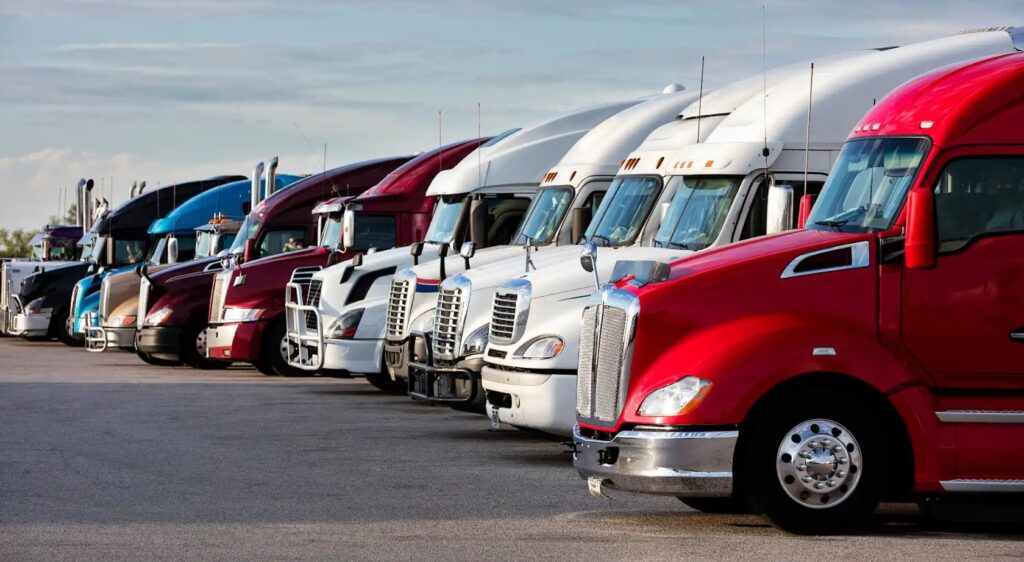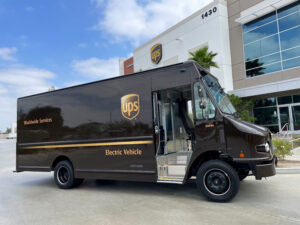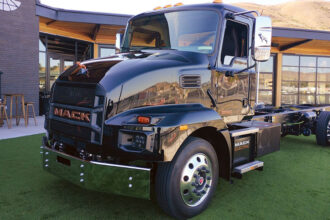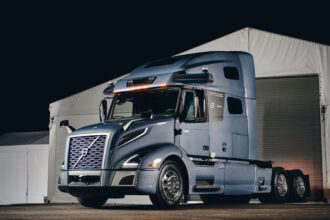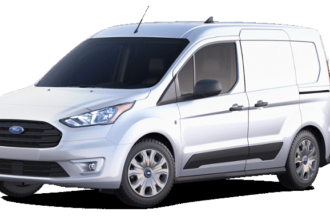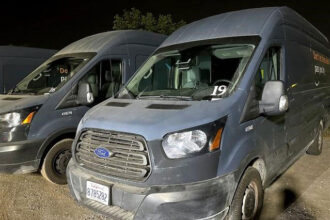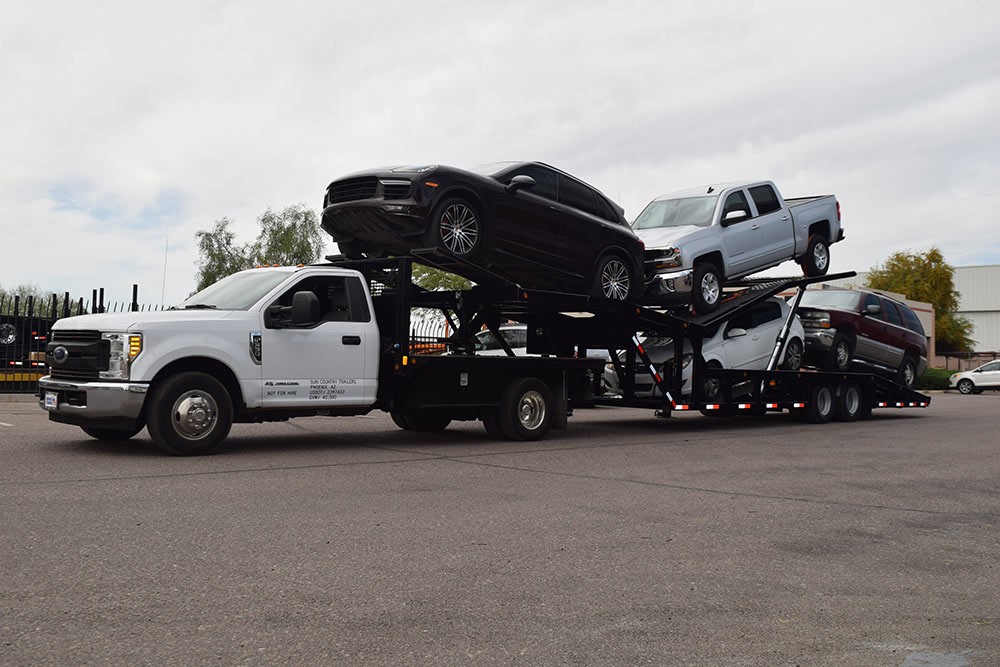Table of Contents
Are you thinking about how to start your own trucking business? Don’t worry; starting a trucking business for beginners like you can be a lucrative venture, and here’s why you should consider diving into this industry. First, the demand for transporting goods across the country is ever-present, making the trucking business a resilient and sustainable choice. As you embark on this journey, you may find yourself at the helm of a vital part of the economy, contributing to the movement of essential products.
Imagine the thrill of owning and managing your fleet of trucks, each one representing a unique opportunity for profit. The autonomy and control that come with being your own boss are truly empowering. You call the shots, set your schedule, and determine your path to success.
Financial rewards abound in the world of trucking. With the right strategy and dedication, you can enjoy a substantial income. Plus, the trucking industry offers various tax incentives and deductions, helping you maximize your earnings.
Moreover, as a beginner in the trucking business, you may discover the freedom to explore different niches within the industry, from long-haul to local routes and specialized cargo to general freight. The diversity of options ensures that you can tailor your business to match your interests and strengths.
To successfully start your trucking business as a beginner:
1. Research the Industry
To start a trucking business as a beginner, research the industry.
To embark on a successful journey in the trucking industry, start by conducting comprehensive research. Dive deep into this dynamic sector to gain a firm grasp of its current trends, regulations, and future growth prospects. This foundational knowledge may be your guiding star as you navigate the complexities of trucking. Keep a watchful eye on market trends, as its evolve constantly. Equally crucial is understanding the intricate web of regulations governing this industry, ensuring compliance, and avoiding legal pitfalls. Lastly, recognizing the potential for growth is key to strategic planning, enabling you to seize opportunities and steer your trucking endeavors towards prosperity.
>>>MORE: Business Plan for Trucking Business
2. Create a Business Plan
To establish your trucking business as a beginner, create a business plan.
Craft a detailed business plan outlining your goals, budget, and strategies for success. A well-structured business plan is your compass through uncharted waters. It meticulously outlines your budgetary requirements, delineating startup costs, operating expenses, and revenue projections. Every dollar spent should align with your objectives.
Furthermore, it reveals your strategies for triumph. From marketing tactics to operational procedures, it illuminates the path to prosperity. Investors, partners, and even you, the entrepreneur, rely on this document to navigate the labyrinth of business, making it an indispensable tool in your arsenal. So craft it meticulously and let it be your guiding star.
3. Select Your Niche
To start trucking business as a beginner, select your niche.
Decide on the specific type of trucking you want to pursue, whether it’s long-haul, local, refrigerated, or specialized. Your decision should align with your preferences and goals. Long-haul trucking involves extensive cross-country journeys that demand endurance and time away from home.
Opting for local trucking means shorter routes and more time at home. If you prefer transporting goods that require temperature control, consider refrigerated trucking. Specialized trucking may involve unique cargo like hazardous materials or oversized loads. So, choose wisely; your trucking journey begins with this pivotal decision.
4. Comply With Federal and State Government Regulations
To launch a trucking business as a beginner, comply with federal and state government regulations.
Before you start operating your trucking business, you need to comply with the following:
USDOT Number
If you’re a carrier, the U.S. Department of Transportation (DOT) wants you to have a special ID. It helps keep an eye on safety, inspections, and crashes.
Operating Authority
To carry goods for hire, you need the DOT’s permission. It can specify what kind of cargo you can transport.
Heavy Vehicle Use Tax
The federal government charges an annual tax on trucks over 55,000 pounds to fund highway programs.
International Registration Plan (IRP)
The IRP deals with registration fees based on how far you travel in each state and province. Check your state’s transportation website to register.
International Fuel Tax Agreement (IFTA)
IFTA simplifies fuel use reporting for carriers working in multiple states. You can file a quarterly report to determine your taxes, which are then shared among the states.
BOC-3 Filing
As a carrier, you need a process agent to handle legal papers in every state where you work or have contracts. Some companies offer coverage for this in every U.S. state.
Drug Testing and the FMCSA Clearinghouse
Staying on the right side of the law is crucial. You need to manage drug testing and make sure all your drivers are registered with the FMCSA Clearinghouse.
5. Obtain Insurance
To establish a trucking business as a beginner, obtain insurance.
Trucking businesses face significant expenses when it comes to insurance. There are various types of insurance required for transporting freight:
Primary Liability
You need at least $750,000 in primary liability coverage to handle damages or injuries in accidents where you’re at fault. Keep in mind that many shippers or brokers may ask for $1 million in primary liability coverage.
Cargo
Typically, $100,000 is the requested amount to cover cargo, but this can vary depending on the type of freight you’re transporting. This insurance safeguards against damage to the cargo or theft.
Physical Damage
This insurance kicks in to cover damage to your truck in accidents where you’re not responsible for the collision.
Non-trucking-use (bobtail)
If you find yourself liable for an accident while not carrying a load for someone else, this insurance provides the necessary coverage.
Per-Load Insurance
To reduce your annual insurance expenses and quickly cover specialty loads, you can opt for fast and cost-effective all-risk smart coverage, often attainable in less than 40 seconds.
>>>GET SMARTER: Starting a Tow Truck Business? Buy These Accessories to Succeed
6. Buy or Lease a Truck
To commence a trucking business as a beginner, buy or lease a truck.
When it comes to equipment, like vehicles, you have the choice between buying or leasing. Regardless, the first step is to determine the kind of freight you intend to transport. Are you thinking of running day trips exclusively, or can you require a sleeper cabin? Additionally, your initial trailer can be a van, a refrigerated trailer, or a flatbed trailer. Here are some common lease options:
Full-Service Operating Lease
In this type of lease, you’re responsible for maintenance, taxes, and permits. At the end of the lease term, you simply return the equipment.
Terminal Rental Adjustment Clause (TRAC) Lease
With a TRAC lease, you make a small initial payment. At the lease’s end, you have the option to purchase the truck for its remaining value or let the leasing company sell it. If it profits from the sale, you get that profit; if it incurs a loss, you cover the difference.
Lease Purchase Plans
Lease-purchase plans cater to truckers who might lack a substantial down payment or have poor credit. However, it’s worth noting that experts advise that you may typically end up paying more with these plans compared to traditional financing.
7. Secure Financing
To kickstart a trucking business as a beginner, secure financing.
Explore financing options to purchase trucks and equipment and cover initial operational costs. These funds can facilitate the acquisition of necessary assets and provide an initial operational cushion. Be it through loans, leasing, or investment, exploring financial options is paramount. A well-considered financial strategy ensures a smoother start and long-term success in the realm of trucking and equipment operations.
Recap
In summary, starting a trucking business for beginners is an enticing opportunity. The demand, financial potential, and freedom it offers make it a journey worth embarking upon. So, take that first step towards becoming a successful trucking entrepreneur and watch your aspirations become a reality.


